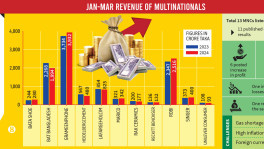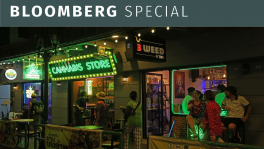Foreign investment inflows fell 16% in 2023

In 2023, the inflow of net foreign direct investment (FDI) declined by 16% year-on-year due to various factors, such as investment uncertainties during an election year and a volatile foreign exchange situation.
According to central bank data, Bangladesh received $3 billion in net FDI last year, compared to $3.48 billion in 2022.
On the slowing FDI inflow, Ahsan H Mansur, executive director at the Policy Research Institute, told The Business Standard, "Bangladesh's macroeconomic situation is now slightly worse than before. This has become a consideration for attracting new investments.
"Additionally, our position in the balance of payments is not very favourable. Furthermore, due to the global situation, FDI inflow has decreased in most developing countries."
According to Bangladesh Bank data, the highest amount of $614 million arrived from the United Kingdom in 2023, accompanied by significant investments from countries like the Netherlands, the US, China, South Korea, Norway, and Singapore.
The net FDI inflow in 2023 consisted of $2.21 billion, or 73%, from reinvested earnings. This indicates that the main source of FDI for the country is the reinvestment of returns from existing foreign investments. Additionally, equity capital inflows reached a four-year low of $705 million.
Asked why reinvestment earnings are a major part of FDI, Ahsan H Mansur said, "The return on investment in our country is very good. Therefore, many people reinvest the income they earn from investments."
"However, in many cases, investors face various hurdles, including central bank restrictions, in repatriating their earnings. As a result, they are naturally forced to reinvest their earnings again," he added.
According to central bank data, the textile and apparel sector attracted the largest investment of $591 million in 2023. Additionally, significant investments were made in sectors such as banking, power, gas, petroleum, and food.
Naser Ezaz Bijoy, chief executive officer at Standard Chartered Bank Bangladesh, told TBS, "The decline in FDI to Bangladesh in 2023 was not surprising."
He said there are mainly three reasons behind the declining trend of FDI inflow. Firstly, foreign investors hesitate to make new investments in an election year.
Secondly, as per the United Nations Conference on Trade and Development (Unctad) report, developing countries in Asia saw a 12% decline in global FDI flow in 2023 due to economic uncertainty, of which Bangladesh was not an exception.
Lastly, the tight forex situation in the country has also made investors adopt a "wait-and-see" approach when making new investments.
Asked how FDI inflow can be increased, the seasoned banker said now that the election is behind us and there is a runway for the next five years. As a result, investors are exploring new investment opportunities, including the acquisition of local companies.
"But to crystallise these intents to actual investments, we need to improve the investors' experience in the elements of ease of doing business such as starting business to logistics, customs and taxation. Additionally, the ability to repatriate profit or dividend, as well as the sale proceeds of equity dilution or exit, influences the decisions of new investors," he added.
Naser Ezaz Bijoy said a vibrant capital market and liberal forex regulation will help attract FDI in a country like Bangladesh, which is already half a trillion USD market with the potential to be the 9th largest consumer economy by reaching $1 trillion of nominal GDP in 2031.


 Keep updated, follow The Business Standard's Google news channel
Keep updated, follow The Business Standard's Google news channel
















